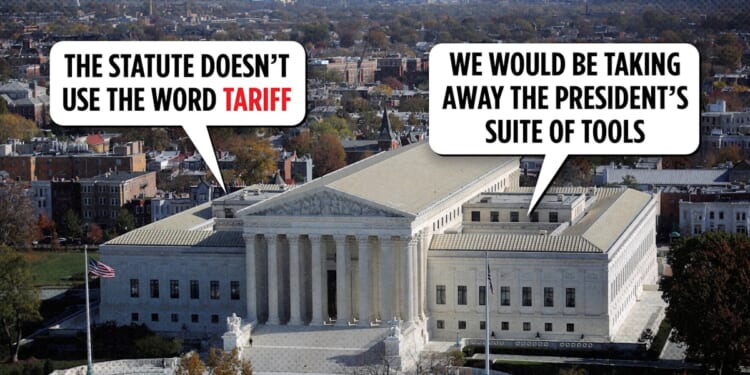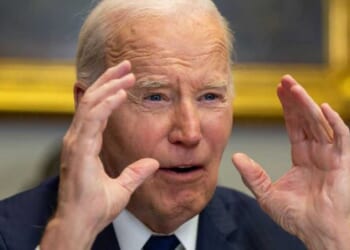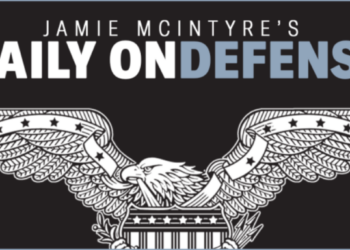President Donald Trump’s tariffs were on trial at the Supreme Court yesterday, and if the justices’ questions and tone were any indication, he may be headed toward defeat. Trump has requested an expedited ruling that could come as early as December, but the justices could also delay until later in 2026.
“Three categories of tariffs are at issue,” explains National Review’s editorial board. “The worldwide 10 percent tariff, the retaliatory ‘liberation day’ tariffs aimed at closing trade deficits in goods, and tariffs on Mexico, Canada, and China that aim to retaliate for fentanyl trafficking.”
To justify those tariffs, Trump and his administration point to the International Emergency Economic Powers Act of 1977 (IEEPA). The big problem? As Chief Justice John Roberts succinctly noted, “The statute doesn’t use the word tariff.” Nor does it even use a synonym such as “duties,” “levies,” or “taxes,” and no previous president has used the law to justify levying tariffs. Trump argues that the law’s language about “importation or exportation” is broad enough.
“That does seem like it’s major authority,” noted a skeptical Roberts, evoking the “major questions doctrine” that Congress must specifically delegate its authority to the executive on matters with significant impact on the economy and society.
Justice Elena Kagan was even clearer, telling Solicitor General D. John, “It has a lot of actions that can be taken under this statute. It just doesn’t have the one you want.”
Another rub is that Trump skipped other laws that delegate some of Congress’s Article I power over taxes (tariffs are taxes — on Americans) because those other laws are more limited in scope. Instead, the president invoked an “emergency” to gain wide latitude. This is the same method of governance made “normal” by Barack Obama and Joe Biden.
Still, Justice Brett Kavanaugh seemed somewhat sympathetic to this argument, musing that if tariffs are not an option, “you’re taking away the president’s suite of tools.”
The administration even dismissed the tariff revenue as a motivator because, to win this case, the tax question must be minimized. The plaintiffs argue that only Congress has the power to tax. Trump’s team had to convince the justices that tariffs are more akin to an embargo than a tax, despite the fact that Trump has spent the better part of a year touting all the revenue his tariffs will bring in and all the great things that can be done with that money. “We’re making a fortune. We are taking in hundreds of billions of dollars,” Trump boasted over the summer in just one example.
Now? “These are regulatory tariffs. They are not revenue-raising tariffs,” insisted Sauer in arguments on Wednesday. “The fact that they raise revenue is only incidental. The tariffs would be most effective, so to speak, if no person ever paid them.”
The debate has shades of the ObamaCare mandate upon pain of penalty, which Democrats went out of their way to avoid calling a tax before Roberts infamously saved the law by — wait for it — declaring it a tax.
However, there’s an important distinction. Sauer elaborated, “If nobody ever pays the tariffs, and instead Americans direct their consumption towards American producers and stimulate the rebuilding of our hollowed-out manufacturing base, then the policy’s by far the most effective.”
That is indeed the foreign policy and economic objective, though it also prompted Justice Sonia Sotomayor to ask why the administration didn’t implement an embargo on foreign goods. On the contrary, Justice Amy Coney Barrett argued that tariffs are “weaker medicine than completely shutting down trade,” making it odd to allow embargoes but not tariffs.
What happens if the justices strike down Trump’s tariffs? Well, if that includes ordering a refund, “It seems to me like it could be a mess,” admitted Barrett. It could also undermine a key pillar of Trump’s foreign policy agenda, which he argues would lead to “the ruination of our Nation.”
“If we win, we will be the Richest, Most Secure Country anywhere in the World, BY FAR,” Trump wrote Sunday on Truth Social. “If we lose, our Country could be reduced to almost Third World status.” Gosh, it sounds so simple!
In reality, Trump’s implementation of tariffs has been, to borrow Barrett’s word, a “mess.” He raises and lowers rates seemingly on a whim to keep other countries at the negotiating table to reach what he views as a good deal. There’s a lot of merit to this approach, but markets and businesses certainly don’t love all the uncertainty.
Perhaps worst is that if Trump prevails in his core argument that the executive can do practically whatever he wants in the name of “foreign policy” and “emergency,” then we can expect the next Democrat president to wield that massive club on issues like climate change. Even Sauer admitted that such a scenario is “very likely.”
If there’s no limit here, asked Justice Neil Gorsuch, what would stop Congress from “just abdicating all responsibility to regulate foreign commerce, or for that matter, declare war?”
Ironically, a defeat at the Supreme Court could benefit Republicans. If tariffs are struck down and the economy stabilizes while price increases slow significantly, the GOP can capitalize on the “affordability” question that “justified” full-blown socialism in New York City. That said, Team Trump argues there are plenty of ways to keep the tariffs, so I wouldn’t bank on them going away regardless of what the Court rules.

















